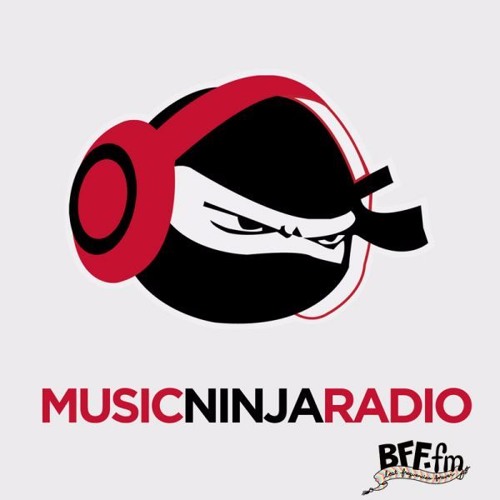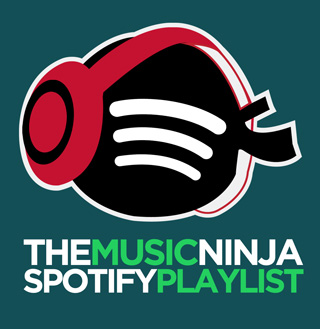
TMN: Hey Jack! Thank you for taking some time to speak with us. First up, let’s talk about the upcoming SXSW shows. Are you getting excited?
JG: Thank you very much. I’m so excited for it. I’ve known about that festival for so long and have always wanted to come and experience it, either as a fan or a musician. To be able to come out and do it as a musician is a real honor.
And, I’ve never been to Texas either, so I’m really looking forward to that.
TMN: How many showcases are you playing?
JG: I’m doing four.
TMN: You’re also doing a few shows in the states after that, correct?
JG: After SXSW, I’m doing two shows in New York. I’m doing support with Kate Tempest, which will be great. Then I’m doing Babies Alright with Communion, which is – for some strange reason – sold out.
On top of that, I’m flying out to LA for a show there, then after that I’m flying to San Francisco for a show, as well. They’ve all sold out as well, which I don’t understand. It doesn’t make any sense.
After that, I have a few weeks off, and I’m hopefully going to stay in LA and do some work. I’ll keep my head down, see what happens, and try to look out for what’s going to happen for the rest of the year.
After that, I head to Europe for, I guess, my proper European debut tour.
TMN: When can we expect a full US tour?
JG: I don’t know! We’re looking at the possibility of it, and trying to make sure we can come over and do some good shows at great venues. We’ll look to do a lot of US dates before the end of the year, and hopefully sooner than I think.
We will definitely, definitely be doing one before the end of the year though.
You’ve seemingly hit a huge stride lately with the last few releases. Do you feel like recently hitting over a million plays on “Worry.” Do you feel a momentum shift happening for your career at the moment?
It just so happens that the reaction has become a lot more dedicated a lot quicker than I predicted it was going to.
It’s difficult to tell if it’s going to be a monumentous occasion in my career because it’s happening. Maybe in a years time, I’ll give you a better answer on if this was a defining moment, or if I end up in a ditch somewhere with nothing to do! (Laughs)
TMN: Understand what you mean by that. For us, as bloggers, we have to take a step back and realize we’re onto things a bit earlier than the mass public. So, in our eyes, we see you as hitting a major stride. It’s a funny relationship we have.
JG: You guys have been so supportive, it’s been incredible! It’s an interesting thing though, you’re right! I’m doing a UK tour in May. I did a very small one at the end of last year. It was for small audiences, ranging from 80 to 130 cap. This time around, we’ve doubled, if not tripled the size of the venues.
It’s crazy – if you think about it, that’s just six months apart. It’s good. It’s a good direction. I’m just trying to stay positive, stay focused, work hard, and keep my feet on the ground.
TMN: Let’s take it back to the beginning. You first started off as an acoustic singer/songwriter. What happened to push you into the style you’re in now?
JG: I came to realize that the songs I was writing were not very good. I was doing them just because I could play the guitar and I could kind of sing. I was doing it to go up on stage and show off to people. It’s just not the right way to make music, at all.
I had a big moment where I realized, in my shows, I would do these stupid guitar solos on the acoustic guitar, and stupid vocal licks that I never actually nailed. I was only doing it to compensate for the lack of songwriting.
My manager at the time, and really cleverly so, took me off of gigging for a year and said, “get your songwriting up to scratch.” It was the best thing that ever happened. I got really itchy because suddenly I had stopped gigging, but after that I started writing stuff that I actually cared about.
It didn’t make sense to write it on the guitar anymore. I was writing more on the piano because I didn’t know how to do crazy solos on the piano, so I stuck to chords. With that, I started to better myself as a producer and try more daring and interesting ideas.
It all fell together in the space of that year. I went from being this really average singer/songwriter/guitar player to someone who was beginning something new.
TMN: We read that Jack White’s Blunderbuss was impactful to you. Talk to us about that
JG: I heard that album around the same time that I hear Frank Ocean’s Channel Orange for the first time. It was in the same year that I wasn’t gigging. Frank Ocean’s album had already come out, but I was really late to the party. Everyone told me that I would love it, and for that reason, I didn’t listen to it. The minute that someone tells me I’m really going to enjoy this, I’m going to find reasons to prove them wrong (laughs.)
First time I listened to Channel Orange, I didn’t get it. I didn’t get it at all. A few months later, Jack White’s Blunderbuss came out, and I found myself listening the Frank Ocean album again, and I just fell head over heels in love with them. I got so deep into both of those records.
It was just how effortlessly brilliant they were. When you pair it down to why those two are effortlessly brilliant, it’s because every single decision that’s been made, in terms of the songwriting, the performance of the melodies, in terms of of the production, and the sounds of it, everything has been done for a reason. There’s not a wasted note in any of those recordings.
I sat there and sort of woke up to that – about caring about the sounds that you make. Obviously, a song comes from the sound. A great song is great chord sequence, great melodies, great lyrics, it’s memorable, and it makes you feel something.
If you can take equal care to the sounds as well, then you’re sorted. That’s a match made in heaven. That’s why Channel Orange is a spotless record. Every song is brilliant. Every song is fantastically written, and every noise, and every moment is perfectly placed.
Same with Blunderbuss, that entire record, every guitar note is so carefully constructed, and very vocal performance from Jack is effortlessly perfect. And, he’s not the best singer in the world. That album doesn’t show off his voice, because it doesn’t need to.
TMN: “Chemical” just came out few weeks back. One thing that we noticed is that there’s a gospel sound in the intro. We’re curious, we’re you brought up in a religious family, or were you just drawn to that particular sound?
JG: I was not brought up in a religious family at all. I went to church as a kid, but it wasn’t meant to convince me, what so ever.
I just love gospel music. Regardless of the religious connotation, gospel music is music for the soul. It’s music to ease the soul. It’s to activate the soul. It’s music to care for the soul. It’s music for the soul. You can’t argue that.
Probably more than anything, I found gospel music through Stevie Wonder and the way he does gospel music. I found gospel music through the Roots, and John Legend, and other not-so-obvious gospel musicians.
I just love the feeling that it gives you. One of things I’ve ever had said to me…I was having a conversation with someone about James Blake, and we were talking about why he’s such an inspirational artist. A friend of mine said, “it’s because he’s a gospel artist. He writes gospel music.”
Suddenly, I heard an entirely different side to James Blake that I hadn’t heard before, and I’ve listened to him a lot. I don’t really hide it. I’m a fan of the guy. He’s incredibly inspirational and has chanced the way people perceive electronic music.
But, when you boil it down – he writes gospel, man! Like Randy Newman, he writes gospel music. It’s unbelievable.
I used it in Chemical because I wanted to evoke a chorus of emotion. I wanted to evoke a sense of community, and the idea of all these people being together for one thing.
TMN: Love the song! So, we touched on this before. With artists that have come to be in the past 5 years, how much attention do you pay to the Hype Machine and the blogosphere?
JG: I try not to, but it doesn’t stop me from googling myself whenever I release a song. Since my songs are so diverse though, stylistically, if I see people falling in love with one song in particular, then I’ll be tempted to write that seven more times.
I try not to get too heavily involved with all of that. Hype Machine, and that whole world, is completely alien to me. I do not understand it. I don’t understand how the algoryhtms work, I don’t understand the website whatsoever.
So many people use it though! It’s a great platform to socially find out about new music. That’s the only thing I’ve ever really understood about it. And they’ve been really supportive as well.
Again though, I try not to let it get to me. I worry and stress too much anyway. The last thing I want are thousands of 13 year olds telling me how shit I am.
TMN: At the end of each interview, we ask some random questions. What was your very first job?
JG: I was a waiter at a café. It was a café/nude art gallery/music venue. I use to gig there when I was 14.
TMN: If you weren’t creating music for a living right now, what would you be doing?
JG: Crying somewhere. Music is all I’ve ever known. I did want to be an actor, as a kid. I also wanted to be a dancer. I’ve always been interested in the arts. I’ve never really been academically talented.
JG: Yes. That is all I will say on the matter. I don’t want to give too many beard secrets away. We’re a very dedicated core group.
TMN: You’re speaking to a bearded brother right now.
JG: (Laughs) Exactly! The less we talk about it, the better.
TMN: What are three things that are always in your fridge, no matter what?
JG: Tomatoes that went out of date two months ago, a half-eaten packet of spinach, and probably less than a decent serving of some kind of yogurt.
TMN: If your music were an animal, what would it be?
JG: (Sighs) Ohhhhh, really good. Really good. I’m going to say a genetically modified chameleon. Not a tiny little rubbish chameleon, like a proper beefcake chameleon, 6ft tall, genetically modified chameleon.





















